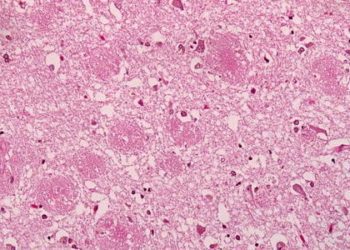#VisualAbstract: Diabetes-Related Emotional Distress Over Time
1. In this prospective cohort study, adolescents with type 1 diabetes (T1D) were noted to be more likely to have persistently elevated distress levels if they were female, had elevated initial hemoglobin A1c (HbA1c) levels, reported the low self-care behaviors, higher levels of depression and anxiety, and increased disease-related family conflict, and demonstrated the low problem solving ability.
2. Conversely, participants in the stable, low distress group were more likely to be male, have a lower HbA1c, reported low levels of depression and anxiety as well as low levels of diabetes-related family conflict, and demonstrated higher levels of self-care and problem solving abilities.
Evidence Rating Level: 1 (Excellent)
Study Rundown: As a chronic disease, T1D can have a significant psychosocial impact on adolescents, making optimal disease management challenging. Prior research on T1D-associated distress has focused on distress levels at discrete points in time among a cross-section of patients. In this study, researchers completed a longitudinal assessment of disease-related distress among adolescents with T1D. Researchers looked at trends in distress levels over time and evaluated for factors associated with these trends. Participants with higher levels of distress were more likely to be female, have elevated initial HbA1c levels, and report lower rates of self-care behaviors. They were also more likely to report higher levels of depression, anxiety and disease-related family conflict and to demonstrate lower problem-solving ability. Conversely, participants with lower levels of distress were more likely to be male, have a lower initial HbA1c, report lower levels of depression, anxiety, and disease-related family conflict while also demonstrating high levels of self-care and problem-solving abilities. Though the study population was largely female, the study results reveal that many adolescents with T1DM struggle with disease-related distress and may benefit from targeted intervention soon after their diagnosis.
Click here to read the study in Pediatrics
©2019 2 Minute Medicine, Inc. All rights reserved. No works may be reproduced without expressed written consent from 2 Minute Medicine, Inc. Inquire about licensing here. No article should be construed as medical advice and is not intended as such by the authors or by 2 Minute Medicine, Inc.









